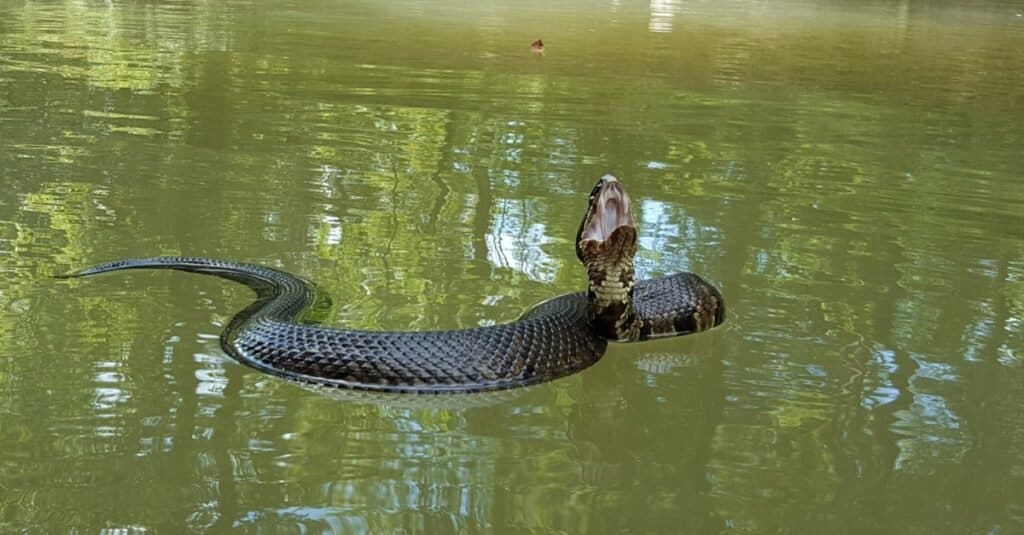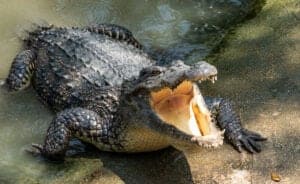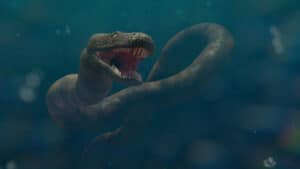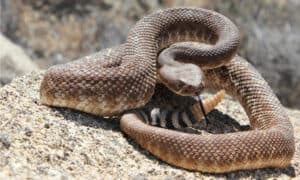The Fantasia Gardens and Fairways Miniature Golf attraction in Disney World has two 18-hole miniature golf adventures based on Disney’s classic animated film Fantasia. There are twirling obstacles, tutu-clad hippos, broomsticks that can soak you, and pirouetting ostriches. However, in January 2023, parkgoers also got to see a snake and shared their experience on Twitter asking what species the snake could be. The picture does not show the entire snake so it is difficult to be certain. However, several opinions were expressed! Most people thought that it was either a banded water snake or a juvenile cottonmouth snake (also called a water moccasin) but these snakes present very different levels of risk to humans!
Check Out These Photos of a Snake in Disney World!
Water Moccasins Are Venomous

Water moccasins are venomous but try to avoid humans
©Seth LaGrange/Shutterstock.com
Water moccasins and cottonmouth snakes are the same species which is Agkistrodon piscivorus. It is a common misconception that there are different types of snakes. These snakes are a type of pit viper and are native to the southeastern United States. Water moccasins are the only semi-aquatic pit viper species and the only venomous water snake in North America. They are usually around 30 inches long but can grow much longer and can weigh up to 10 pounds.
Even though they are venomous snakes, they do not go out of their way to attack humans. They would prefer to avoid confrontation if they can. However, when they do bite, they strike quickly and clamp tightly onto your body delivering venom through their fangs. This venom contains a hemotoxin that destroys blood cells and interferes with clotting so the victim will often suffer hemorrhaging.
Banded Water Snakes Are Harmless
Banded water snakes are not venomous and are found along the United States Coastal Plain from North Carolina to Southwest Alabama as well as parts of Arizona, Florida, and Texas.
They like to live near streams and ponds that are populated with vegetation. They can stay underwater for two hours or longer but also like to lounge on logs near the water. Their diet consists mainly of frogs, fish, and small birds.
There are three different subspecies of banded water snakes and each has a different geographical distribution. One is the Florida water snake (Nerodia fasciata pictiventris). The important fact is that they are non-venomous and do not present a risk to humans.
The photo featured at the top of this post is © Patrick K. Campbell/Shutterstock.com
Discover the "Monster" Snake 5X Bigger than an Anaconda
Every day A-Z Animals sends out some of the most incredible facts in the world from our free newsletter. Want to discover the 10 most beautiful snakes in the world, a "snake island" where you're never more than 3 feet from danger, or a "monster" snake 5X larger than an anaconda? Then sign up right now and you'll start receiving our daily newsletter absolutely free.
Thank you for reading! Have some feedback for us? Contact the AZ Animals editorial team.






